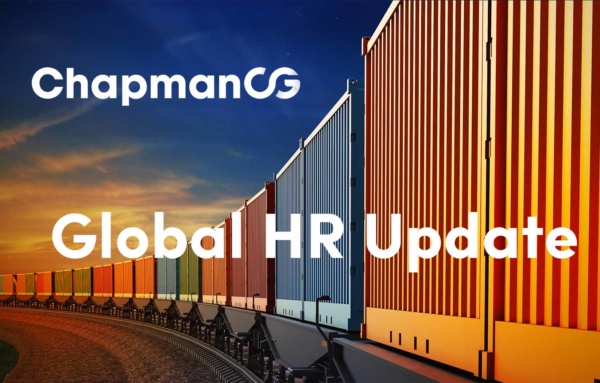Background: Emerging Economies have Surpassed Developed Economies as the World’s Economic Growth Engine, Altering the Global Mobility Landscape
The 2007-2012 Global Financial Crisis (GFC as it has now become known) is viewed by many economists and business leaders as the worst financial crisis since the Great Depression of the 1930’s. The GFC has become a milestone in the shift in economic power from West to East. The Economist magazine noted in a recent article that according to the IMF, emerging markets will produce more than half of global output (measured at purchasing-power parity) by 2013. This shift in economic power has brought about rapid and substantial change to the multinational employers of all regions. Within companies, no group of people has felt the impact of these changes more than the most globally mobile group — expatriates. And yet, surprisingly little is being published or talked about as regards how expat life is changing as a result of this new world order, or how Human Resources Leaders from the most progressive companies are working to ensure the well being, longevity and productivity of the expatriate talent under their purview.
As the Balance of Power Moves from West to East, ‘Expats’ are Moving from East to West
The definition of an ‘expat’ is changing. These days, an ‘expat’ is less often an American or European executive, posted to an emerging region or country, empowered to sit atop a group of local employees. Instead, an ‘expat’ can be a high potential Chinese, Singaporean, Brazilian or Indian national — sent to the United States or the UK, for example, by a U.S., European or Asian multinational. Occasionally these postings are at the top leadership level; other times they are at the middle management level and designed to be a development opportunity for a high potential employee.
Excellent career opportunities continue to be available for those with the more traditional ‘expat’ profile (i.e. leadership, usually Western, moved to emerging markets from U.S. and European multinational headquarters for a 2-4 year assignment). However, as emerging markets receiving these leaders mature, there is less ‘blind’ acceptance that the ‘traditional’ expatriate model offers the best solution for all concerned.
The Traditional Expat Model – A Flawed Past
There is an increasing realization among HR Leaders that the traditional expat model is (arguably) flawed in that it has been, in many cases a short-term solution/band-aid that has not enabled the company to make the progress that it had hoped to. This is summarised below:
- Very few companies have managed to find a reliable way to quantify the value that an expatriate brings over the term of his or her assignment.
- Repatriation has been, and remains, problematic. Returning expatriates often depart the company shortly before, during or after being repatriated to their home country.
- Frequently, the presence of an expat is merely a short-term measure. While multinational companies bring in expats to emerging markets with the hopes of building a local succession plan, the desired succession does not happen and one departing expat has to be replaced with another. The new arrival generally has little or no local knowledge or experience — causing a perceived step backwards and frustration within the local office.
- Among local employees, the presence of an expat can also create consternation regarding perceptions of special treatment/favoritism when it comes to pay packets and expense accounts. Quite rightly in many cases, there can also be concern about expatriates creating a glass ceiling for local employees looking for promotion opportunities.
The Drive Towards Localization
Since the GFC we’ve noted Human Resources teams within multinational corporations placing a far greater emphasis on localization within emerging markets. Born out of necessity, there is a desire to fast track local talent wherever possible, with the need for local language and local cultural understanding being very top of mind. There is no doubt that much greater strategic focus is being applied to the retention and long-term career development of valued local managers. We are also seeing a much more commonly held view that flying expats in and out is not necessarily going to automatically further this cause. From an employee point of view, we are seeing an increasingly confident and sophisticated group of local managers who don’t perceive that foreign bosses add sufficient value given their lack of local knowledge and (often) their perceived inability to forge a close bond with the local team.
Repatriation Remains a Problem
Companies put a tremendous amount of time, effort and money into offering top executives assignments overseas, with the underlying assumption that this will be a ‘win win’ scenario for both the company and the executive. Generally this proves to be the case for a time. There is no doubt that the executive (and his/her family) gains professionally and personally from a positive working experience abroad. With an international assignment, especially to a developing/rapid growth market comes with expanded responsibility and decision making power, less supervision and red tape, greater visibility in the organization and a steep learning curve. After 3-5 years, the executive is often a substantially more evolved manager in terms of business skills, cultural understanding, scope of the challenges he feels confident to take on and overall maturity as a business person and a leader. Despite this, it’s often the case that very little thought goes into planning a suitably challenging (or enjoyable) role for the executive to return to. He or she will often come back to a similar job to the one that he or she left and one that does not take advantage of his/her newly found skills and experience.
Through distance and the passage of time, the returning executive often arrives home and finds things have changed at HQ. Often the executive is disappointed to discover he/she has to prove his/her value to new masters who were never involved in the original planning of the posting. A returning executive is often at his most vulnerable when immediately before, during or shortly after her/his repatriation. Smart Western multinationals, aided by globally capable recruitment firms, are snapping up less-than-happy returning executives, and taking advantage of their international experience. Now more than ever, executives who can ‘bridge’ East and West are in demand. Employers who fail to assess and understand the value the returning executive are losing out to those looking to hire internationally experienced leadership.
Recommendations: Some Approaches Top HR Leaders are Employing
Below are some strategies that are working well for HR Leaders responsible for expatriate
mobility in progressive organizations:
- Localize Leadership but Ensure Diversity. In key growth markets, like anywhere else, a lack of diversity within an employee population is not healthy. A drive to localize ‘at all costs’ can involve potentially very expensive risk taking. A 100% local team in an emerging market is not necessarily going to function well, or communicate well with headquarters, or have the experience to get the job done to the necessary global standard. Within emerging markets, there is a place for foreigners to bring/add real value. However, those foreigners don’t necessarily need to sit at the top of the company or department, as per the ‘traditional’ expat model. Locally hired foreigners at all levels can bring substantial local market understanding and they are able to ramp up very quickly versus newly transferred expatriates.
- ​Ensure Consistent and Transp
arent Compensation and Benefits Policies. Due to salary inflation in major growth markets, fully blown expat salary packages are no longer as necessary, since local salaries are, in many cases, approaching or at U.S. or European levels, thus making the presence of foreign talent (whether imported or hired locally) more affordable, cost-efficient and harmonious. The use of ‘local plus’ salary and benefits packages for foreigners (whether local hires or transfers from HQ) can be perceived as fairer for all concerned and more affordable for the organization. - Prioritize Repatriation Planning for Executives. It is important to start this early and make it a priority. Very few multinational companies do this well. Opportunities could be found to allow returning executives to innovate and continue to enjoy the freedom and decision making power that they experienced overseas. The returning expats themselves should be able to provide some excellent input in shaping HQ policies to build effective bridges between the HQ and international teams.
- Take a Fully Integrated Approach to HR Disciplines when Dealing with Expatriate Issues. A more complex global workplace requires this. For example, the discussions above touch on the domains of Generalist HR; Global Mobility; Diversity and Inclusion; Compensation and Benefits; Talent Management and Talent Acquisition. A less siloed, more cohesive approach can only lead to better, more thoughtful planning and management of expatriate careers.
In conclusion, the impact of the economic shifts of the past five years has been substantial. The global workplace has changed in ways that multinational employers could not have imagined only a few short years ago. A more complex world is driving the need for HR Leaders to re-think and re-vamp existing policies with regard to expatriate careers and global mobility. Due to the growth of emerging markets, critical talent and critical roles increasingly do not exist in the same location. Therefore, the need to move talent around the world – and do it productively and effectively – will continue to increase. Currently, only a small number of companies seem to be effectively rising to this challenge.
 Andrea Merrigan
Andrea Merrigan Orelia Chan
Orelia Chan Stanislav Medvedev
Stanislav Medvedev Fleur Daniell
Fleur Daniell Finian Toh
Finian Toh Tim Rayner
Tim Rayner Nicola Hasling
Nicola Hasling Stefanie Cross-Wilson
Stefanie Cross-Wilson


